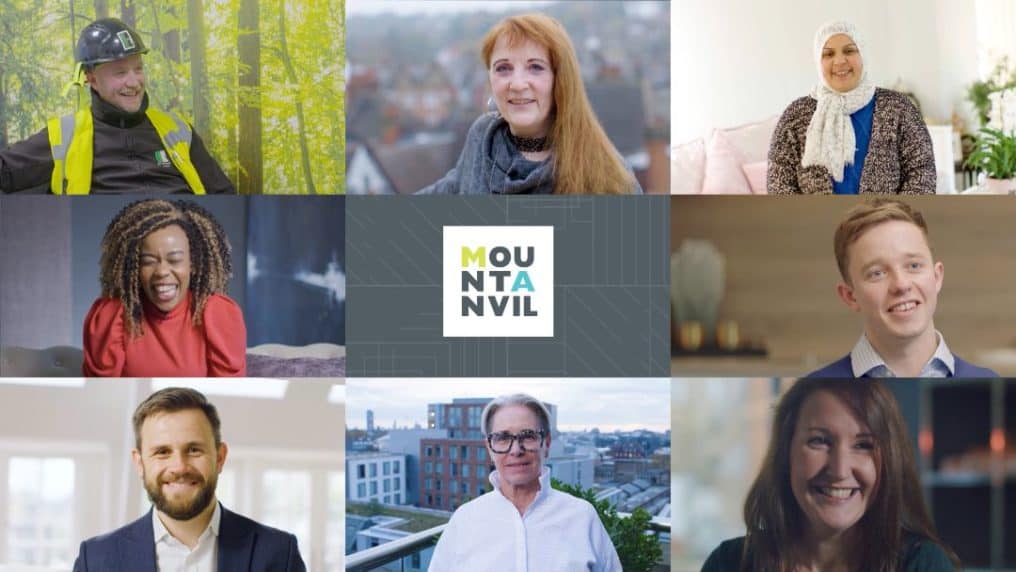Background & Challenge
The traditional recruitment process needed redesigning, because it breeds bias and poor decisions.
Mount Anvil have been learning, experimenting and refining their hiring processes over the last couple of years and now have a method that busts bias and leads to better decisions on who they select for a role. It’s a data-driven process that starts with unusual scorecards, instead of traditional job descriptions, and ends with offering perfectly good hires three months’ money to leave the business once they’re settled in.
In the Mount Anvil culture, it’s important to distribute responsibility for people matters throughout the business, not relying on a traditional HR structure but having a People Ops team that creates systems and collects data. As the final step in an evolution of their recruitment practice, they rolled out an Interview Supergroup concept – intensively training a cross-section of people from across the business in the unusual process and specialised interviewing techniques. One of these Supergroup members gets involved in every hire, no matter what department. Their job is to lead interviews, coach other managers, and challenge assumptions while upholding the rigorous process. The first Supergroup graduated in July 2020, having been through six months of intensive training.
Approach
The recruitment team and Mount Anvil’s MD share a belief that loose interviewing leads to biased decisions based on factors that are irrelevant to doing the role. So, they looked at every step of our process and reshaped it to better serve the selection of the best candidate (not just the most charming, the best-connected, or the most familiar). The resulting process is one which busts bias. Based on psychologist Ron Friedman’s thinking, there are structured interviews with multiple interviewers and a very high bar for note-taking. There is a dedicated note-taker alongside someone who’s been highly trained to build rapport, ask brilliant open questions and probe for information. Friedman suggests “Another step to help minimise your interviewing blind spots: include multiple interviewers and give them each specific criteria upon which to evaluate the candidate. Without a predefined framework for evaluating applicants—which may include relevant experience, communication skills, attention to detail—it’s hard for interviewers to know where to focus. And when this happens, fuzzy interpersonal factors hold greater weight, biasing assessments. Far better to channel interviewers’ attention in specific ways, so that the feedback they provide is precise.”
Mount Anvil also use an applicant tracking system called Greenhouse– every interview is tracked and interviewers record their scores and their notes. All interviewers give scores to their candidate according to specific scorecard elements – only scoring the thing they’re specifically testing. When an interviewer comes to the Calibration (decision-making) meeting, they have to justify their scores. The Calibration meetings are really robust debate sessions where any scoring that isn’t buttressed with facts are ignored!
This is a resource-intensive process for Managers and they have an informative toolkit to help. They also need support, which they get not only from a recruitment manager but also from their Supergroup member. The Supergroup is brand new for 2019/20. Interview training had already been completed for a cross-section of managers with San Francisco-based talent assessor, Jordan Burton. Jordan was part of ghSMART, the company behind the “Who” book and the very structured interview methodology that had already been adopted at Mount Anvil. Eight high-potential teammates were taken from the original training and asked if they wanted to commit time and energy to forming the first Interview Supergroup. They then did a two-day intensive training course with Jordan in February 2020, understanding the basic principles of great, revealing interviews: Rapport/engagement; Right flow/questions; Open question follow-ups/calibration of achievements; and Time management.
Outcome
Following the training, two mock interviews were observed a month later. The intention was then to have every Supergroup member participate in three live interviews during the following Quarter. With the disruption of COVID, two observed mock interviews and two one hour coaching sessions were completed instead by each participant, followed by a final, virtual observation with Jordan.
The eight Supergroup members moved from a baseline average to graduation level – 7/10 was the agreed threshold for graduation, as validated by Mount Anvil’s recruitment managers and Jordan. Scores in the first assessment ranged from a 2/10 to a 9/10 on some of the above elements, so achieving consistent graduation scores was no mean feat and testament to group members investing time in their bespoke coaching, doing extra practice with teammates and committing wholeheartedly to being part of this new recruitment process.
- Scores for Rapport/engagement shifted from a baseline of 6 to graduation score of 8.1
- Scores for Right flow/questions from 5.6 to 7.6
- Scores for Open question follow-ups/calibration of achievements shifted from 5.1 to 7.3
- Scores for Time management from 5.9 to 7
The aim was to measure Supergroup interventions in real live roles, but as the pandemic took hold natural attrition dwindled to zero and hiring was paused when construction sites closed down. The achievement was to pivot, keep the team engaged and keep skills sharp. Graduation scores bear out the success of this.
Broader training was then undertaken so that all managers could understand the new process through the toolkit in which it is codified, preparing everyone for when hiring ramped up again.
As of December 2020, all of the Supergroup members have now taken part in a live interview which have resulted in hires. In three months’ time, each of these new Mount Anvil teammates will be given ‘The Offer’ – a financial incentive to leave the business. It’s equivalent to 10% of the individual’s salary and everyone is offered it because if someone loves the culture, they’ll stay despite the cash. But if they don’t, they can leave to look for a new role without monetary concerns because mistakes about who Mount Anvil bring in are much more costly in the long run.

